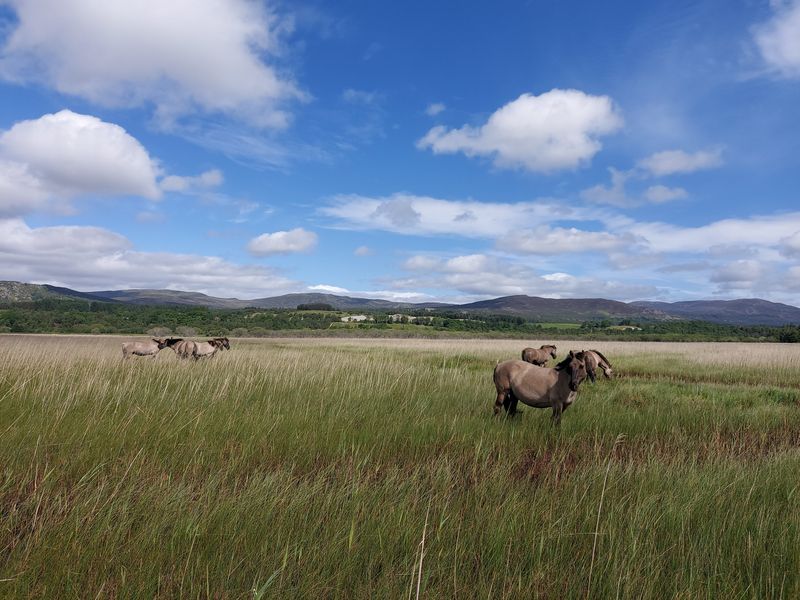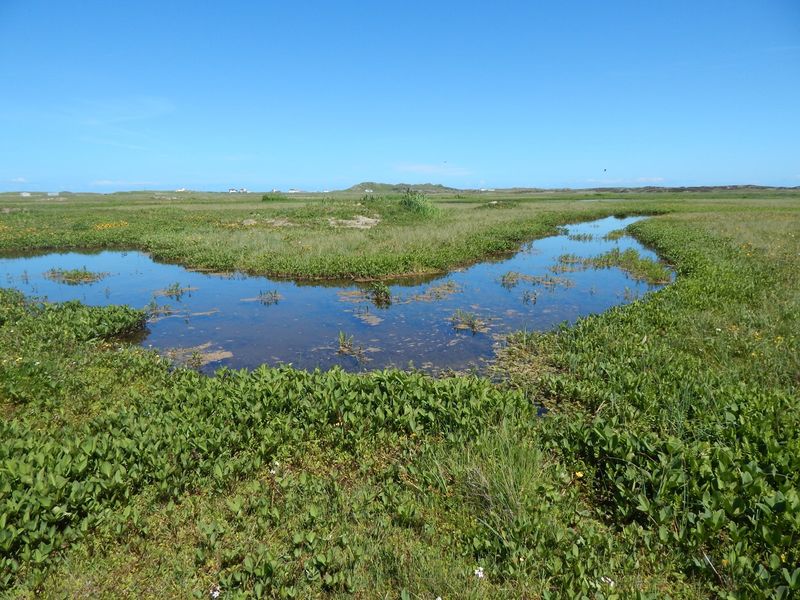Find more funding
There are many other organisations who may be offering funding that will help you, and our handy funding search tool brings them all together.
The project has had outstanding results. Over 3,500 hectares of habitat have been improved across a number of the charity’s nature reserves including Loch Lomond, Mersehead and The Oa. Better conditions have been created for some of Scotland’s most endangered species including Capercaillie, where numbers have risen from 18 lekking males in 2020 to 29 in 2025 at RSPB Abernethy despite declines elsewhere, and Chough, which have increased on RSPB Scotland’s Islay nature reserves from seven pairs to 10 pairs.
LIFE 100% for Nature has also benefitted communities through creating jobs, developing over 60 volunteers and supporting local business and has celebrated success in developing innovative and effective management practices to benefit nature which can be replicated in other areas to restore Scotland’s incredible nature.

Duncan Orr-Ewing, Head of Species and Land Management, RSPB Scotland, said
“The achievements made as part of LIFE 100% for Nature demonstrate we can make significant strides towards reversing biodiversity loss and restoring Scotland’s incredible habitats and species. The success has also showcased how restoring nature can benefit communities through providing jobs and green skills, supporting local business, and providing opportunities to boost wellbeing. It’s clear that dedicated nature conservation efforts, collaborative partnership working and the use of innovative techniques will benefit Scotland’s wildlife and people.”
Ben Ross, Head of protected Areas, NatureScot said
“As Scotland focusses in on its ambitious goal of safeguarding 30% of our land and seas for nature by 2030, pioneering partnerships like Life 100% for Nature demonstrate the exciting and beneficial actions we can take around our sites and species when we work in innovative partnerships. The passion and expertise behind these projects, offers a wealth of learning and opportunity for future site monitoring approaches.”
The success of the project has attracted further funding and partnerships to continue delivering solutions which will help Scotland meet its biodiversity targets. The Famous Grouse, Cairngorms National Park Authority and other funders will support Capercaillie work at Abernethy, while the Crown Estate and Forestry and Land Scotland (FLS) are supporting continued habitat improvement at Culbin Sands and the expansion of this work to FLS land. In addition to these, the Solway Coast and Marine Project (SCAMP), led by Dumfries and Galloway Council, will extend work at Mersehead and Kirkconnell ensuring ongoing protection of the site’s unique wildlife.

Duncan Orr-Ewing continued:
“Nature is still in trouble across Scotland and a crucial outcome of this project is the legacy it leaves. The groundwork has been laid for continued success not only on RSPB Scotland nature reserves but through tested, evidence-based approaches that can be implemented elsewhere. It’s encouraging to see more partners and funders are already working together to ensure key habitats and species can thrive in the future.”
LIFE 100% for Nature was made possible with funding from the LIFE Programme of the European Union, NatureScot, the Endangered Landscapes and Seascapes Programme (ELSP), The Famous Grouse and others.
There are many other organisations who may be offering funding that will help you, and our handy funding search tool brings them all together.